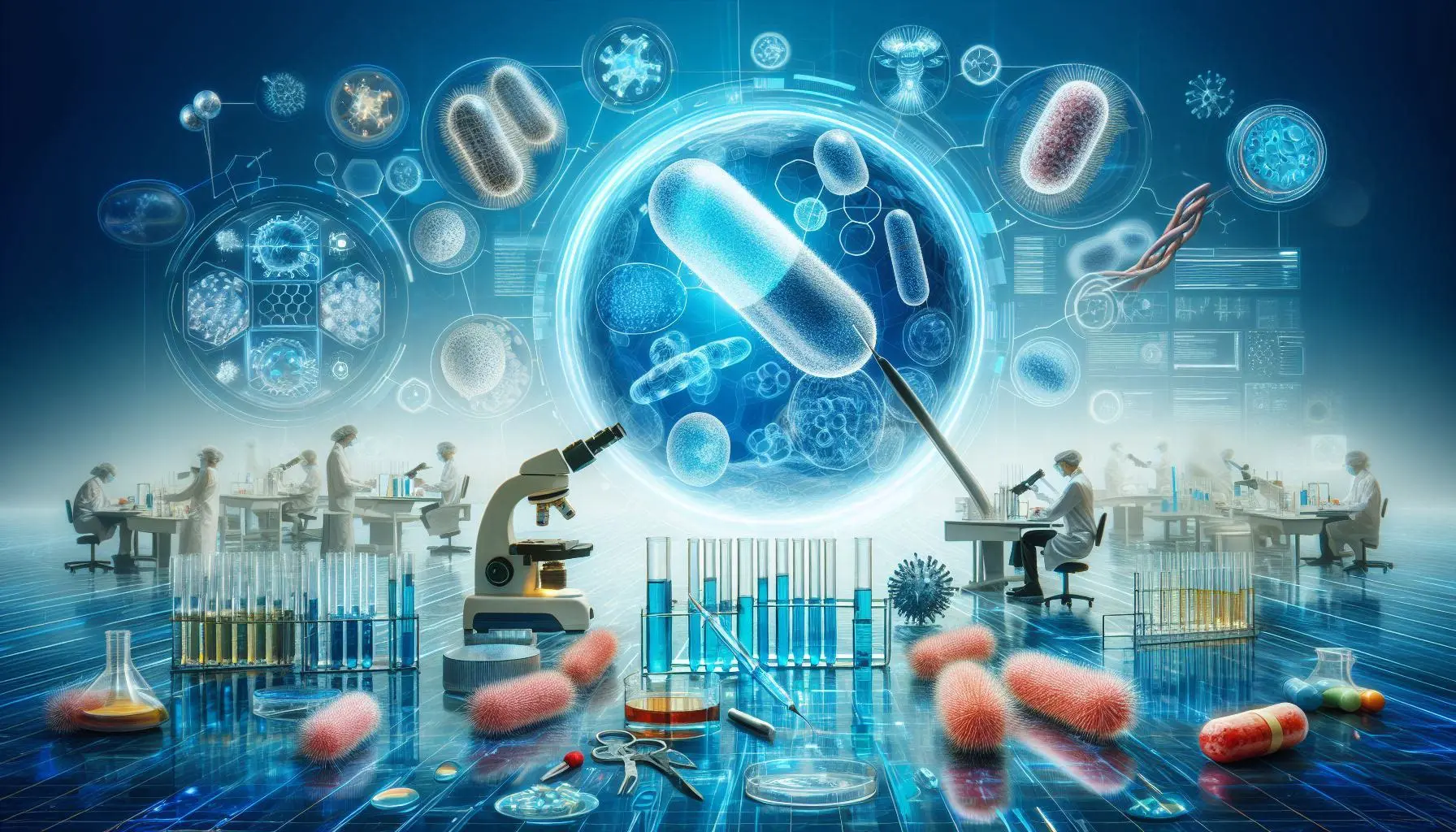
Courtesy: iDataAcumen
In April 2024, researchers at Ginkgo Bioworks, a synthetic biology company based in Boston, announced a breakthrough in their efforts to engineer microbes capable of producing pharmaceutically relevant compounds. This development, reported in the prestigious journal Nature Biotechnology, could potentially address unmet medical needs by providing a more efficient and cost-effective method for producing complex therapeutic molecules.
The news article highlights Ginkgo Bioworks' innovative approach to synthetic biology, which involves engineering microorganisms, such as bacteria or yeast, to produce desired compounds. This technology has implications across various sectors, including pharmaceuticals, agriculture, and industrial chemicals.
In the pharmaceutical industry, synthetic biology offers a promising alternative to traditional methods of drug production, which often rely on complex chemical synthesis or extraction from natural sources. By genetically modifying microbes, researchers can potentially create "living factories" capable of producing a wide range of therapeutic molecules, including antibiotics, anti-cancer drugs, and biologic therapies.
Ginkgo Bioworks' recent achievement focuses on the production of a specific class of compounds known as non-ribosomal peptides (NRPs). NRPs are a diverse group of molecules with a wide range of biological activities, including antimicrobial, immunosuppressive, and anticancer properties. However, their complex structures have made them challenging to produce through traditional chemical synthesis or extraction methods.
The researchers at Ginkgo Bioworks have developed a novel approach that involves engineering the biosynthetic pathways of microbes to produce desired NRPs. This method has the potential to overcome the limitations of traditional production methods, offering greater efficiency, scalability, and cost-effectiveness.
Existing alternative options for producing NRPs include chemical synthesis, which is often costly and inefficient for complex molecules, and extraction from natural sources, which can be limited by low yields and environmental concerns. Ginkgo Bioworks' synthetic biology approach challenges the status quo by providing a potentially more sustainable and scalable solution.
The breakthrough in synthetic biology achieved by Ginkgo Bioworks could have far-reaching implications for the healthcare industry. By enabling the cost-effective production of complex therapeutic molecules, synthetic biology could potentially improve access to life-saving drugs and expand treatment options for various diseases.
Furthermore, this technology could accelerate the drug discovery process by allowing researchers to rapidly engineer and test new compounds, potentially leading to the development of novel therapies for currently untreatable conditions.
However, it is essential to consider the potential risks and challenges associated with synthetic biology. Concerns surrounding biosafety, ethical considerations, and regulatory frameworks need to be addressed to ensure the responsible development and deployment of this technology.
Overall, the rise of synthetic biology represents a significant step forward in the field of healthcare, offering the potential to revolutionize drug production, enhance therapeutic options, and ultimately improve patient outcomes. As this technology continues to evolve, it will be crucial for stakeholders, including researchers, pharmaceutical companies, policymakers, and the public, to engage in open and informed discussions to maximize the benefits while mitigating potential risks.